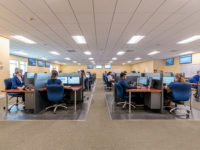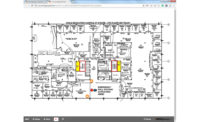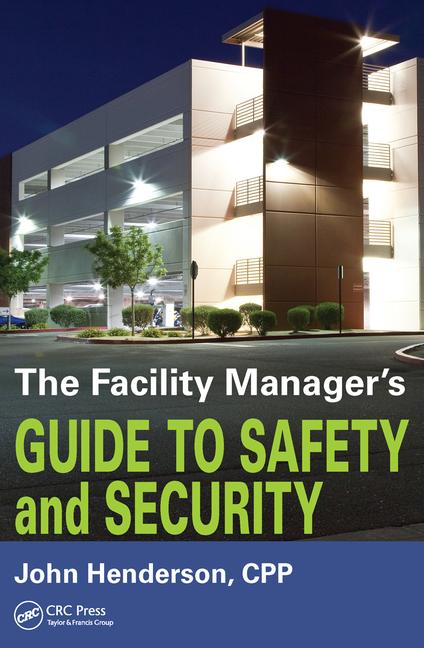Innovation is the name of the game for central stations that offer monitoring on a wholesale basis. SDM checked in recently with several wholesale central stations, which impressed us with the variety and creativity of the new monitoring services they have introduced in the past year. These central stations are taking a big picture view as they rethink their processes with an eye towards supporting future industry growth.
On the services side, new offerings that leverage global position system (GPS) technology are one important trend. Several central station executives we spoke with say they are seeing strong growth in mobile personal emergency response system (mPERS) capability. Christopher Baskin, CEO of Los Angeles-based American Two-Way, notes double-digit annual growth for mobile PERS services. And at Kansas City, Mo.-based Alarm Central LLC, the rise of mobile PERS is driving significant operational changes.
GPS also plays a role in supporting new mobile monitoring services that leverage a vehicle’s on-board diagnostic (OBD) port from American Two-Way. And a new asset tracking service from Vyanet Operating Group Inc.’s Bend, Ore.-based business unit Paragon Monitoring that uses miniaturized transmitters is also GPS-based.
Another new monitoring service — this one from Des Plaines, Ill.-based EMERgency24 — takes a unique approach to video monitoring to support an outdoor perimeter monitoring system that is more affordable than such systems have been in the past.
As for the big picture, Rapid Response Monitoring Services Inc. Vice President of Technology and
Innovation, Morgan Hertel, relates that company’s plans for supporting expected industry growth, including a new approach to hiring. Ron Bowden, director of dealer development for San Antonio, Texas-based United Central Control, offers an update on the program that company put together to help dealers grow their business. And Caroline Brown, vice president of business development for Statesville, N.C.-based Security Central, describes a new custom report capability for that company’s dealers that can help them with their marketing activities.
Service and operational innovations such as these from today’s wholesale central stations should have a substantial positive impact on the business performance of the security dealers that the central stations serve.
Alarm Central Sees New Operator Requirements
One wholesale central station that has seen the need for new operator skill sets is Alarm Central. Mobile PERS has been a key growth area for Alarm Central and as Alarm Central General Manager Jeff Herdman notes, the procedures that central station operators have to follow when handling alarm signals from those devices is significantly different from how traditional PERS alarms are handled.
“Traditionally PERS would be tied to a residence,” Herdman observes. “With a traditional alarm, you have an address and you dispatch to that address.”
With mobile PERS, however, the person using the device could be in another state. “Now you have longitude and latitude coordinates that bring up a map,” he explains. Operators must use that information to determine the proper local responders.
Additionally, operators may be in two-way communication with the customer to get additional information.
The rise of mobile PERS and other considerations have caused Alarm Central to revamp its training programs, Herdman observes. “We’re really focused on customer service,” he notes.
Paragon Monitoring: A New Form of Asset Tracking
Global positioning is a key component of a new monitoring offering that Paragon Monitoring has developed for “a specific industry,” explains Jeff Martin, general manager.
Paragon Monitoring worked with a company involved in that industry to develop a tiny device small enough to fit into a prescription medicine container, which Paragon will monitor. To keep the size of the device small, communication will be via email. The device also has an accelerometer, which detects when the device is moved.
“It’s mostly in sleep mode, but when awakened it starts to transmit,” explains Martin, who adds that the central station also can put the device into a mode so that it is tracked more frequently.
Paragon worked with its central station automation software provider to integrate the new device with that software. As Martin explains, “The device has a unique serial number that is transmitted via cellular Internet to the central station in an email.” The automation system then uses that serial number to look up the account with which it is associated.
“It’s not as highly supervised as some types of transmission,” cautions Martin. That means the device isn’t suitable for life-critical applications such as fire. Nevertheless, now that the technology has been developed, it would appear to have applications in a wide variety of industries.
American Two-Way Points Out Connected Opportunities
Some people in the alarm industry felt threatened when Internet connectivity began to appear in devices such as thermostats, lighting controls and other home control devices because that connectivity gave consumers the option of doing their own monitoring via their smartphones or other Internet-connected devices. But Baskin of American Two-Way sees it differently. “We feel this has actually created vast opportunities,” he says.
To illustrate, Baskin recounts his experiences visiting the “connected home” section at a recent Consumer Electronics Show. In that area were all sorts of Internet-connected devices — even Internet-connected pet water bowls designed to alert the pet’s owner if the bowl were to run dry.
Devices such as these can be professionally monitored, observes Baskin, who adds that while not everyone will want to monitor their pet’s bowl 24/7, it could be a helpful option if the owner were to go out of town.
“We’ve coined a new phrase — the Connected Everything,” Baskin says.
Baskin cautions dealers not to charge a lot for monitoring “connected-everything” devices. But he adds that, if the price is right, a customer might sign up for monitoring of three or four different connected devices. Not only does that boost recurring monthly revenue, it also makes the customer less likely to cancel service or change alarm companies, Baskin notes.
Rapid Response Expects Rapid Growth
“One thing that’s new to wholesale monitoring companies is scale,” comments Hertel of Syracuse, N.Y.-based Rapid Response.
Fifteen years or so ago, a large central station was one with 5,000 or 10,000 accounts, but today some central stations have more than 400,000 accounts, Hertel says. “Never before have we seen the scale we’re starting to see as more and more smaller companies that had central stations are shutting down,” he adds.
The most important way these changes have impacted Rapid Response is on the human resources side. “You have to hire a different set of people to be ready for tomorrow,” observes Hertel.
Rapid Response looks for at least two years of college for any new employee, including those hired to be central station operators. “The people you’re hiring today, if you’re doing it right, will [eventually] be managers and supervisors,” Hertel says.
Rapid Response also is looking closely at best practices in other industries with an eye toward preparing for future growth. Hertel notes, for example, that “the typical central station is really starting to morph into a different type of call center.” Some call centers in other industries have more than 20,000 agents, and according to Hertel, “there’s a lot you can learn from interacting with call center associations and organizations” such as how to incentivize people.
United Central Control’s Dealer Program Gains Traction
Not all new developments in wholesale central station monitoring are on the product and services side. For example, United Central Control is getting good feedback from dealers on the program that the central station previously announced to support those dealers.
“Dealers are getting good results,” Bowden observes. “They are seeing improvements in attrition and sales. One said we saved them $100,000 last year.”
The UCC dealer program includes a range of offerings including training options such as webinars and in-person training. Some training is technical, while other training focuses on topics such as how to generate referrals and how to establish affinity relationships.
The UCC dealer program also gives UCC dealers access to the services of an on-demand marketing and advertising agency that can work with the dealer to provide services such as developing marketing materials or redesigning the dealer’s website. UCC has an agreement with the agency that makes this possible, Bowden explains.
“If we can help a dealer by increasing sales, that raises their boat and raises ours, too,” he says.
Emergency 24: Perimeter Video Monitoring
As the cost of video cameras has decreased — and as homeowners have gained the ability to check in on those cameras using their smartphones — EMERgency24 has seen increased interest in central station video monitoring. When it comes to outdoor cameras, however, that type of monitoring traditionally has been quite expensive. Outdoor cameras tend to experience a high number of false alarms, and it can be quite time consuming for operators to frequently review video images from those alarms and respond appropriately.
EMERgency24 recently launched a lower-cost video perimeter monitoring option, however. The offering is called “video filtered response.” And as Kevin Lehan, manager of public relations for EMERgency24, explains, with this service, alarm signals go first to the end user, who can use his or her smartphone to tell the central station operators to dismiss the alarm or to dispatch authorities. For certain video camera models, the end user also can send a disarm message.
The new service offers options for homeowners. “If there is no response within 15 minutes, we cancel the signal,” explains Kevin McCarthy, national sales manager for EMERgency24.
“It’s very cost-effective,” Lehan says. “Dealers can add exterior monitoring where it wasn’t feasible before.”
Security Central: Dealers Can Order Custom Reports
Another wholesale central station that aims to help dealers manage their business is Statesville, N.C.-based Security Central. The company offers what it calls “Business Suite Portfolio Options” that provide services such as answering a dealer’s phones or printing pre-designed marketing materials with the dealer’s name.
A recent addition to that suite is online reports, which dealers now can order using an app. In addition to enabling dealers to enter customized information about their customers, the app has been enhanced to enable dealers to request custom reports for use in marketing and other activities, Brown explains.“People can go on the app to request a report,” he says. “They may want to see a feature about their accounts or there may be something they’re looking to pinpoint for target marketing.”
MORE ONLINE
For more on wholesale central station monitoring visit SDM’s website where you’ll find the following articles:
“Look Before You Leap into Video Monitoring”
www.SDMmag.com/look-before-leap-video-monitoring
“Advances in Wholesale Monitoring”
www.SDMmag.com/advances-wholesale-monitoring
“SDM Guide to Monitoring Services”
www.SDMmag.com/central-stations-monitoring-guide













